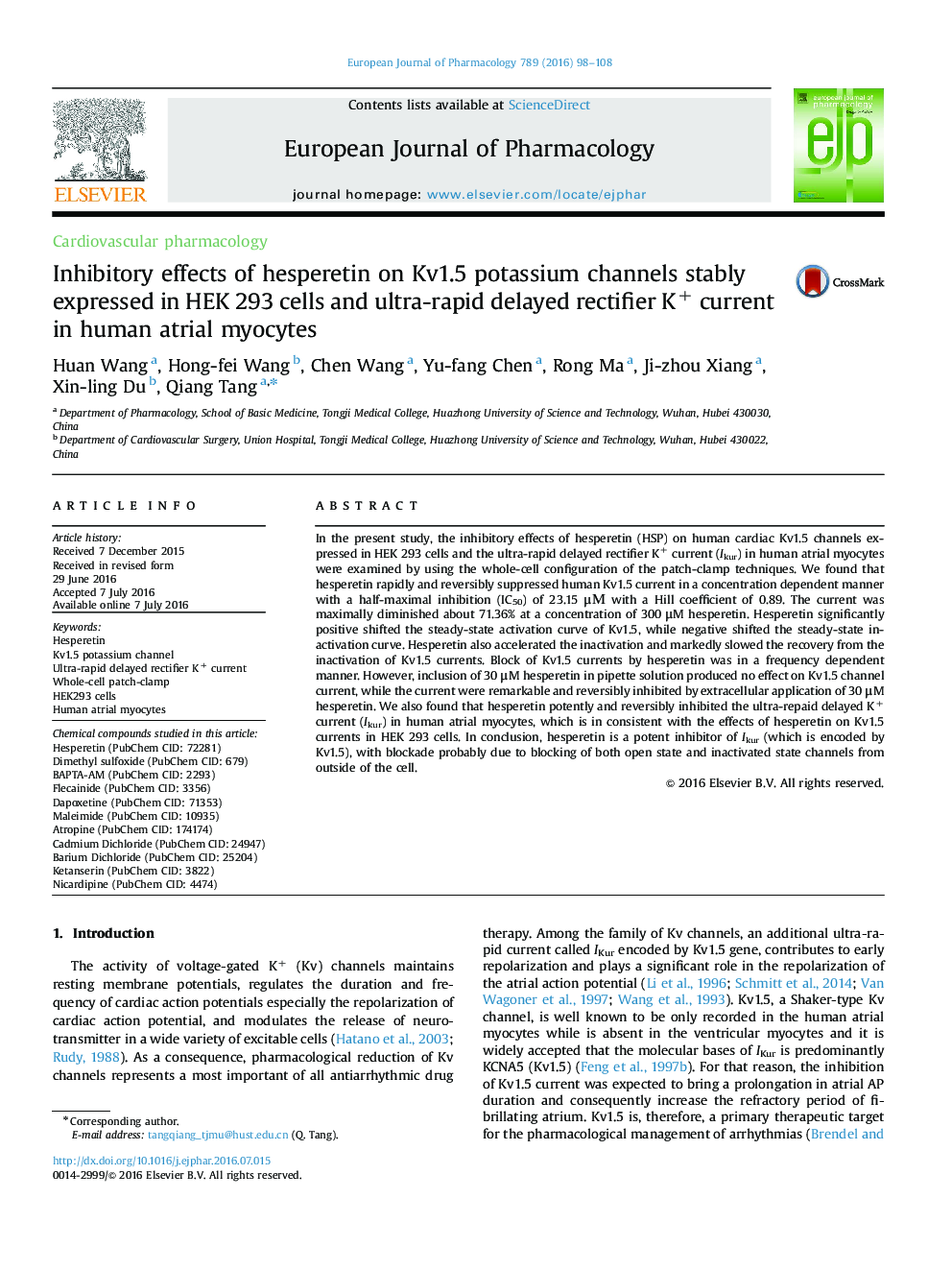| Article ID | Journal | Published Year | Pages | File Type |
|---|---|---|---|---|
| 2530834 | European Journal of Pharmacology | 2016 | 11 Pages |
In the present study, the inhibitory effects of hesperetin (HSP) on human cardiac Kv1.5 channels expressed in HEK 293 cells and the ultra-rapid delayed rectifier K+ current (Ikur) in human atrial myocytes were examined by using the whole-cell configuration of the patch-clamp techniques. We found that hesperetin rapidly and reversibly suppressed human Kv1.5 current in a concentration dependent manner with a half-maximal inhibition (IC50) of 23.15 μΜ with a Hill coefficient of 0.89. The current was maximally diminished about 71.36% at a concentration of 300 μM hesperetin. Hesperetin significantly positive shifted the steady-state activation curve of Kv1.5, while negative shifted the steady-state inactivation curve. Hesperetin also accelerated the inactivation and markedly slowed the recovery from the inactivation of Kv1.5 currents. Block of Kv1.5 currents by hesperetin was in a frequency dependent manner. However, inclusion of 30 μM hesperetin in pipette solution produced no effect on Kv1.5 channel current, while the current were remarkable and reversibly inhibited by extracellular application of 30 μM hesperetin. We also found that hesperetin potently and reversibly inhibited the ultra-repaid delayed K+ current (Ikur) in human atrial myocytes, which is in consistent with the effects of hesperetin on Kv1.5 currents in HEK 293 cells. In conclusion, hesperetin is a potent inhibitor of Ikur (which is encoded by Kv1.5), with blockade probably due to blocking of both open state and inactivated state channels from outside of the cell.
